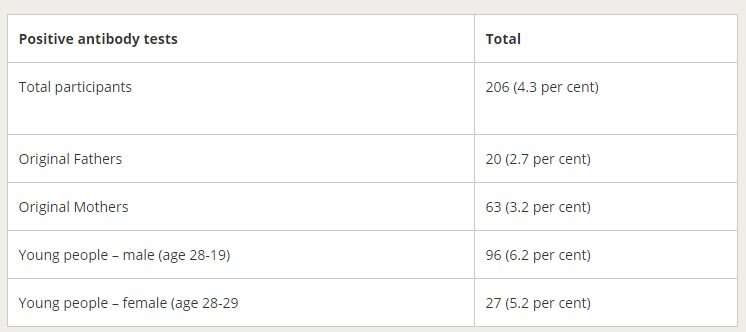
Children of the 90s, a health study based at the University of Bristol, has today [10 November] published results from a study testing almost 5,000 participants for COVID-19 antibodies. The results found 4.3% reported a positive result, of which a quarter were asymptomatic and did not report any symptoms in previous questionnaires.
Whilst a positive result does not indicate immunity to the virus, the results are an important step in helping scientists to answer vital questions about who is affected, how it spreads through the community, and possible immune responses.
Key findings were:
- 4.3% of participants reported a positive result on their antibody test (206 participants);
- Almost twice as many young people reported a COVID-19 infection than those of their parents’ generation—5.9% of young people and 3.1% of their parents age reported a positive antibody response;
- Of those who tested positive, around a quarter were asymptomatic.
Professor Nic Timpson, Children of the 90s’ Principal Investigator said: “We want to understand how many people in our study have had a COVID-19 infection, especially those who had an infection without even knowing it or with only mild symptoms. With decades of valuable health data to provide background to this pandemic, longitudinal research is key to learning more about COVID-19.”
The research will now form part of a national collaboration with the UK Coronavirus Immunology Consortium (UK-CIC), which is led by Professor Paul Moss at the University of Birmingham. Three hundred Children of the 90s participants are being invited to take part in the ongoing study over the next 12 months, which will offer a unique insight into how people respond to the virus and the condition known as “long COVID.”
“The immune system is critical to determining the outcome of all infections and indeed understanding so many of the unknowns about the pandemic,” added Professor Paul Moss.
Source: Read Full Article






